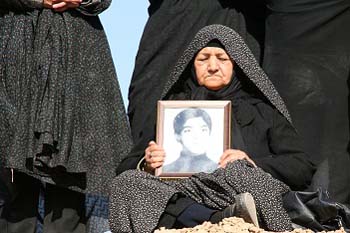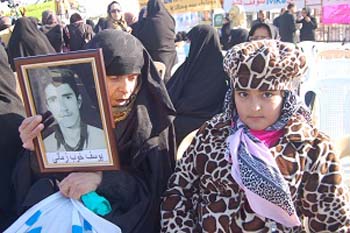Camp Liberty, which housed U.S. troops in Iraq up until a few months ago, is now open to house members of the State Department-designated foreign terrorist organization known as the .jpg) Mujahedeen e-Khalq (MEK). But MEK leaders haven’t decided they’re ready to move in just yet.
Mujahedeen e-Khalq (MEK). But MEK leaders haven’t decided they’re ready to move in just yet.
"The U.S. has and continues to welcome and support the peaceful temporary relocation and eventual permanent resettlement of the residents of Camp Ashraf in Iraq," said Ambassador Dan Fried, the State Department’s special advisor on Camp Ashraf, currently home to several thousand MEK members. "Our purpose is humanitarian. We welcomed the signing of the [Memorandum of Understanding] last Christmas Day between the Iraqi government and the U.N. This MOU charts a peaceful way forward."
The document set into writing the Iraqi government’s decision to delay the closure of Camp Ashraf, where up to 3,200 members of the MEK have been living for years. The Iraqi government had promised to close Camp Ashraf in December but agreed to push back that date for six months.
Baghdad also agreed to ensure the safe treatment of the MEK members, who fear and distrust the government of Iraqi Prime Minister Nouri al-Maliki.
"At this new location, the U.N. High Commission for Refugees will be able to conduct refugee status determinations for the residents of Ashraf — a necessary first step toward resettlement to third countries," Secretary of State Hillary Clinton said on Dec. 25. "We are encouraged by the Iraqi government’s willingness to commit to this plan, and expect it to fulfill all its responsibilities, especially the elements of the MOU that provide for the safety and security of Ashraf’s residents."
The facility has now been officially renamed Camp Hurriya (Arabic for "freedom") and the first MEK members can now go there, Fried said. The United Nations announced on Jan. 31 that the facilities at Camp Liberty now meet international humanitarian standards and are ready to receive Camp Ashraf’s residents.
"In any move of this kind and in the early days, once people are settling into Hurriya, problems may arise, of course," he said. "Patience, goodwill, and willingness to resolve logistical issues in a practical way will be critical."
But no members of the MEK have yet made the move, despite the extensive efforts of the United States and the United Nations to get their new home ready and to convince the Iraqi government to support the move.
"The residents of Camp Ashraf must make the decision to start this relocation process. Camp Ashraf is no longer a viable home for them. They have no secure future there," said Fried.
The Marxist-Islamist group, which was formed in 1965, was used by deposed Iraqi autocrat Saddam Hussein to attack the Iranian government during the Iran-Iraq war in the 1980s, and has been implicated in the deaths of U.S. military personnel and civilians.
The new Iraqi government has been trying to evict them from Camp Ashraf since the United States toppled Saddam in 2003. The U.S. military guarded the outside of the camp until handing over external security to the Iraqis in 2009. The Iraqi Army has since tried twice to enter Camp Ashraf, resulting in bloody clashes with the MEK.
Camp Hurriya is only meant to be a temporary home for the MEK. From there, its members could elect to go back to Iran or move on to a third country, if they have residency there. The United States will help certain MEK members apply for refugee status on a case by case basis.
Fried urged the MEK to make the decision to move to Camp Hurriya, and he asked the group’s many supporters in Washington to convey that message directly to the MEK.
The MEK’s list of advocates, most who have admitted being paid, includes Congressman John Lewis (D-GA), former Pennsylvania Gov. Ed Rendell, former FBI Director Louis Freeh, former Sen. Robert Torricelli, Rep. Patrick Kennedy, former CIA Deputy Director of Clandestine Operations John Sano, former National Security Advisor James Jones, former Vermont Gov. Howard Dean, former New York Mayor Rudolph Giuliani, former Joint Chiefs Chairman Gen. Richard Myers, former White House Chief of Staff Andy Card, Gen. Wesley Clark, former Rep. Lee Hamilton, former CIA Director Porter Goss, senior advisor to the Romney campaign Mitchell Reiss, Gen. Anthony Zinni, former Pennsylvania Gov. Tom Ridge, former Sen. Evan Bayh, and many others.
"All those who wish the residents of Ashraf a peaceful future outside of Iraq can help by encouraging the MEK to make the decision it needs to make," Fried said. "The responsibility for the next decision rests with the MEK… A peaceful solution is at hand, but they’ve got to take it."

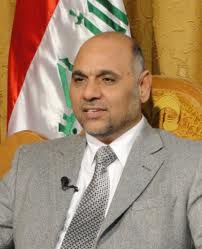
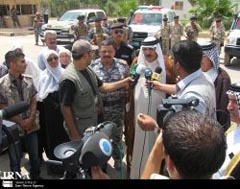 Prime Minister to sue criminals and saboteurs, calling for closure of the garrison of the outlawed and terrorist Mujahideen Khalq Organization (MKO).
Prime Minister to sue criminals and saboteurs, calling for closure of the garrison of the outlawed and terrorist Mujahideen Khalq Organization (MKO).
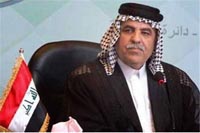
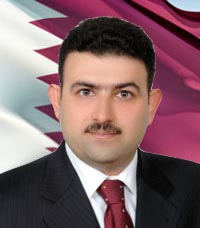 destination.”
destination.” Iraqi government officially signed the Memorandum of Understanding, which is, in essence, an evacuation notice. [1]
Iraqi government officially signed the Memorandum of Understanding, which is, in essence, an evacuation notice. [1]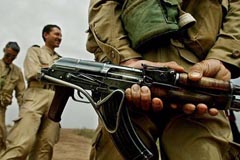
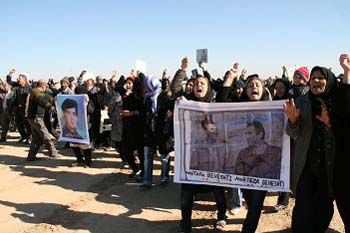 leaders of the Mojahedin Khalq Organisation according to which the camp should be evacuated by the end of year 2011.
leaders of the Mojahedin Khalq Organisation according to which the camp should be evacuated by the end of year 2011.